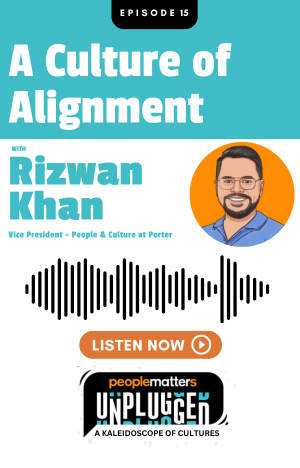Culture will remain crucial to corporate success: Donald Sull of MIT

READ the June 2021 issue of our magazine: The Digital Culture Reset
Donald Sull is a Senior Lecturer at the MIT Sloan School of Management.
Sull is a global authority on executing strategy in volatile markets and teaches courses on strategy formation and implementation at MIT Sloan. He has been identified as a leading management thinker by The Economist, the Financial Times, and Fortune which named him among the ten new management gurus to know. The Economist listed his theory of active inertia among the ideas that shaped business management over the past century.
He has published six books, including Simple Rules (with Kathy Eisenhardt, 2015), The Upside of Turbulence (2009), and Why Good Companies Go Bad. Sull has also written over 100 book chapters, case studies, and articles, including several bestselling Harvard Business Review articles.
Prior to academia, he worked as a consultant with McKinsey & Company, and as a management-investor with the leveraged buyout firm Clayton & Dubilier on the Uniroyal-Goodrich Tire Company deal. Sull has taught entrepreneurship at the Harvard Business School and strategy at the London Business School, winning teaching awards at both schools.
Here are the excerpts.
Do you think COVID-19 has changed the world of work for good? How will it look like in the post-pandemic days?
The reality is that no one knows for sure -- the move to remote work has been an unprecedented natural experiment. My best guess is that remote work will be more common, with many white-collar employees working from home 1-2 days per week on average. Collectively that represents a large shift in the total percentage of workdays delivered remotely, by some estimates a four-fold jump.
On one side, organizations are increasingly embracing remote/hybrid mode of work, a large chunk of workers across several organizations are reluctant to return to their desks over the fear of losing flexibility gained during the pandemic, on the other? Isn’t it complex?
A recent survey of more than 22,000 US employees found that on average they wanted to work two days per week remotely, but employers prefer they work one day per week from home. My hunch is that most knowledge workers will settle between 1-2 days, depending on the nature of their job and the relative bargaining power between employer and employee.
MORE FOR YOU...
- Special interview with Mark Stout, CVP, Global HR, Nissan
- Alan May, HPE’s EVP-HR on the new ways of working
- Cisco’s Fran Katsoudas on seismic shifts in the world of work
- QBE’s Vernon Griffith on the new world of work
As companies start reopening across several parts of the globe with renewed vigor, how important, according to you, is getting work ‘culture’ right especially in the hybrid world of work?
Culture will remain crucial to corporate success. A growing body of evidence shows that corporate culture not only determines whether employees join and stay with a company, it also predicts innovation, customer satisfaction, and financial results. A Wharton survey of more than one thousand CEOs and CFOs found more than 90 percent believe corporate culture influences corporate profitability and also can decrease the odds of illegal or unethical behavior. The big question is how companies can achieve their desired culture with more employees working remotely.
With a distributed workforce, what’s the best way to ensure ‘work culture’ is adaptable and aligned with organizational goals?
Again, we're in the early days of figuring this out. One important lever to reinforce corporate culture among remote employees has become clear--frequent communication. We conducted a study of how employees rated their employer's culture before COVID-19 and during the first six months of the forced remote work. Surprisingly, the average culture rating (measured by Glassdoor reviews) for large organizations actually increased during COVID-19. The biggest driver of increased culture ratings was frequent communication by senior executives. Employees especially valued frequent updates from the CEO that included an interactive component. Savvy leaders will, I suspect, continue these frequent interactive sessions to help employees feel connected to the company even when they are working remotely.
It’s also important to understand that some of the organizations that take culture most seriously, like Goldman Sachs or Netflix, are insisting employees return to the office. Reed Hasting is adamant that culture is crucial to Netflix's success and that employees need to interact with each other in person to build and reinforce a healthy culture. The importance of frequent face-to-face interaction to transmit and reinforce culture, in my assessment, is a compelling argument in favor of limiting employee's remote work to one day per week.
In the digital world, how can tech innovations help organizations reinvent and strengthen their work culture?
The most important innovations will allow leaders to rigorously measure corporate culture. It is surprising how many managers still rely on anecdotal evidence or poorly designed surveys to measure culture. When leaders are flying blind in terms of corporate culture, it opens the door to implicit bias in crucial people decisions.
There has been an explosion in free text data that sheds light on corporate culture. Employees describe what's working and not on employee reviews on Glassdoor and similar job review sites; in the open-ended questions in internal engagement and pulse surveys; and 360 reviews on individual leaders. Employee feedbacks are typically the richest source of insight on corporate culture. The people who live the culture day to day describe, in their own words which elements of the culture are working, which are not, and what concrete actions leaders can take to improve culture.
To give a sense of the magnitude of this goldmine of free-text data--one of our clients has 60,000 pages of free-text data including company reviews, engagement survey responses, and manager reviews. That is fifteen times as long as all the Harry Potter books put together! And that's just one year's worth of data.
How are service providers in the HR space evolving their products and solutions to meet changing demands of organizations? How do you see the vendor landscape today?
Right now, most companies are focusing on collecting employee feedback through pulse surveys, passive listening, and other tools. The bigger question, however, is what do you do with all this data? I had a call with a people analytics executive at one of the world's largest and most respected tech companies in the world. This company spends employees nearly 20,000 engineers and spends $25 billion per year on R&D. The company administers a survey to all employees once per year and collects detailed free-text responses. How does this tech giant make sense of all that rich data? One person in the company reads less than one percent of free text reviews and tries to manually identify big trends. That's absurd!
My academic research at MIT and my start-up CultureX applies cutting-edge natural language understanding technology to help leaders translate free-text data into actionable insights that drive business results. We believe that CHROs, CEOs, and CFOs will increasingly demand data to inform the most important decisions: Who gets hired? Who gets promoted? Where are the toxic subcultures in our organization that could lead to legal risk from discrimination or unethical behavior? Who are the hidden heroes that might be overlooked due to leaders' implicit biases? Data is great, but it only matters when it is translated into actionable insights that improve not only employee engagement, but also revenue growth, profitability, and innovation.
How do you see the role of talent leaders evolve in 2021 and beyond? What have you learned?
Unfortunately, I don't have a crystal ball to predict the future. But I certainly hope that leaders will continue to recognize the importance of corporate culture and harness the power of people analytics to build healthier cultures.














